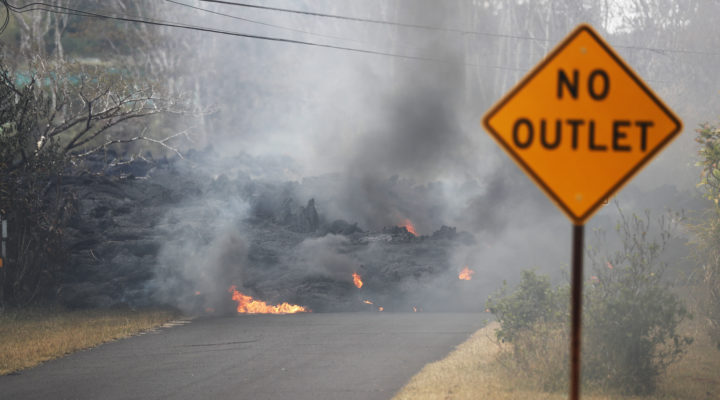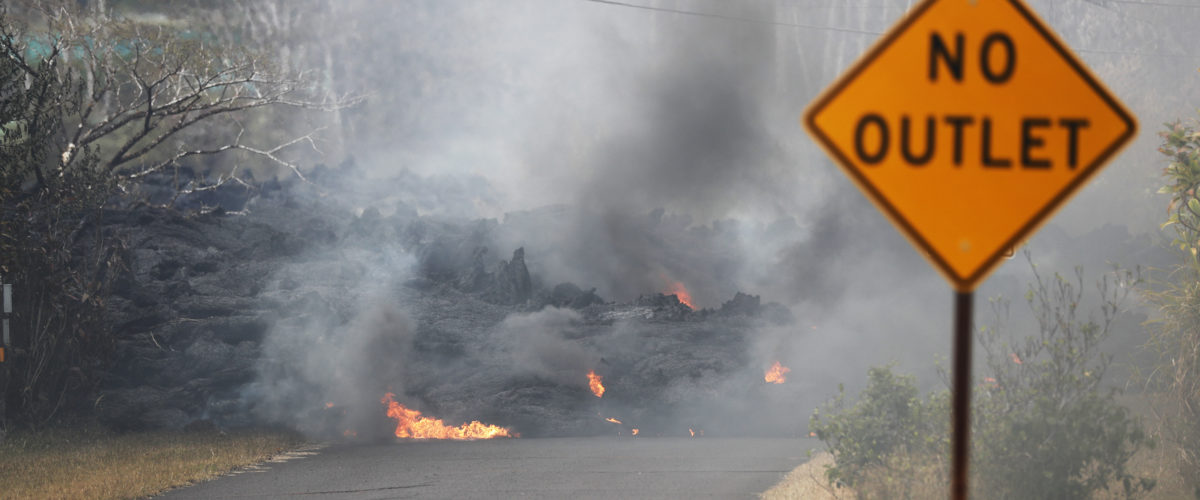Recent volcanic eruptions have more than molten lava oozing to the surface on Hawaii’s Big Island.
In addition to quakes and tremors and sulfuric acid poisoning the air, destroying homes and forcing some evacuations, nearly a month of heightened seismic activity also is exposing long simmering fissures between Christianity, and traditional Hawaiian religion.
The Kilauea volcano on the Island of Hawaii erupted May 3, spewing ash and toxic gases, disgorging columns of smoke thousands of feet into he sky and sending many residents into shelters and friends’ homes. Significant volcanic activity has continued ever since.
According to many Hawaiians — especially those with deep roots in the islands’ cuture — it is the fire goddess Pele, stirred by her legendary fury, who is behind the geological mayhem.
But that perspective has also been shared by generations of Christians on the islands.
“We talked about Pele all the time,” said Amy Butler, senior minister at The Riverside Church in New York City. “It was common in my family to say Tutu Pele is angry.”
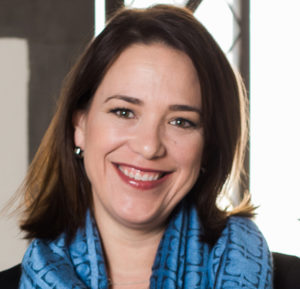
Amy Butler
Butler was born and raised in Hawaii by parents who strived to integrate their Christian faith with traditional Hawaiian values.
“Dad used to say, ‘We can follow Jesus and we can have the animal spirit that protects our family,’” she said. Her family’s spiritual animal is the shark.
But that point of view has been challenged in recent years by many in the islands who see Christianity as an instrument of colonialism.
“You can’t tell the story of Hawaii without telling the depth of exploitation by white colonizers and the United States,” Butler said.
‘Sometimes rage is needed’
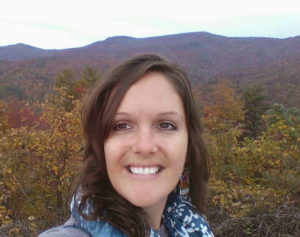
Angela Yarber
That’s definitely a point lost in most media coverage of the ongoing volcanic crisis, said Angela Yarber, a Hawaii resident and founder and director of the Holy Women Icons Project, a non-profit that works to empower marginalized women through storytelling, art, writing and special events.
The closest area of volcanic activity is located about 12 miles from Yarber’s home, and she and her family have welcomed several evacuees into their house.
It’s true that the destruction of homes, evacuations and toxic emissions are tragic, Yarber said.
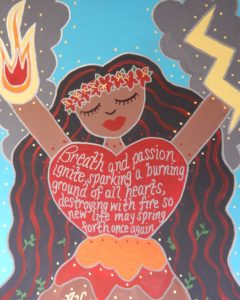
The goddess Pele as painted by Angela Yarber.
But “it is equally traumatic that the majority of those displaced are already marginalized people,” she said in remarks shared by email. One of the communities hit hardest “is the poorest district in the entire state of Hawaii.”
Hawaiians living in those areas were originally relegated there by colonialists and military occupiers, who carved out the geologically safer areas for themselves, she said.
“Many outsiders have been quick to cast blame on people who have been displaced, claiming that they should have known better than to live in a lava zone 1, without acknowledging the ways poverty and colonialism have created these very neighborhoods,” she said.
And it is the interweaving of a deep respect for the land and Pele mythology, plus a generational familiarity with active volcanos, that helps people process these experiences.
“People understand that, in order for new life to be created, destruction must come first,” Yarber said. “We live on new land, formed by lava, and now new land is being created.”
The goddess Pele also offers a liberating example for women.
“Her apparent anger, rage, or passion is instructive for women who are stereotypically taught not to be angry,” Yarber said. “But sometimes rage is needed.”
‘It’s not schizophrenic’
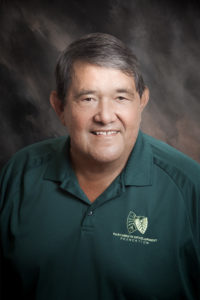
Jan Dill
Also needed is an out-in-the-open dialogue about the relationship between Hawaiian religion and Christianity, said Jan Hanohano Dill, president and founder of Partners in Development Foundation, a non-profit that provides education, social services and environmental programs to serve families and communities.
Recent volcanic activity has pushed the two traditions into stark relief.
“That’s the big issue in the room in Hawaiian communities,” said Dill, who is Amy Butler’s father. “But we haven’t had serious and informed discussions about where are the traditional perspectives as we look at the Christian values.”
The ongoing eruptions offer an ideal context for that dialogue because many in the islands, even some Christian pastors, reference Pele and other elements from Hawaiian tradition and values.
But another context that cannot be ignored is a healthy sovereignty movement that has arisen in recent decades. In addition to seeking separation from the United States, many in the effort have denounced Christianity as a faith of exploitation at odds with the polytheistic island traditions.
Dill was born and raised Catholic in Hawaii and later joined the Presbyterian Church in America. He said it isn’t necessary to draw a line between the Christian and Hawaiian values.
“A lot of our pastors will have the traditional culture,” he said. “But it’s not schizophrenic.”
Many successfully integrate traditional Hawaiian views by keeping Christ in the center of it, he said.
“That is probably the most healthy way of looking at it,” he said.

